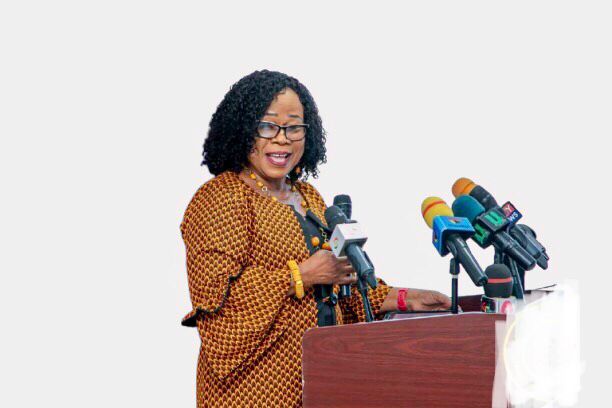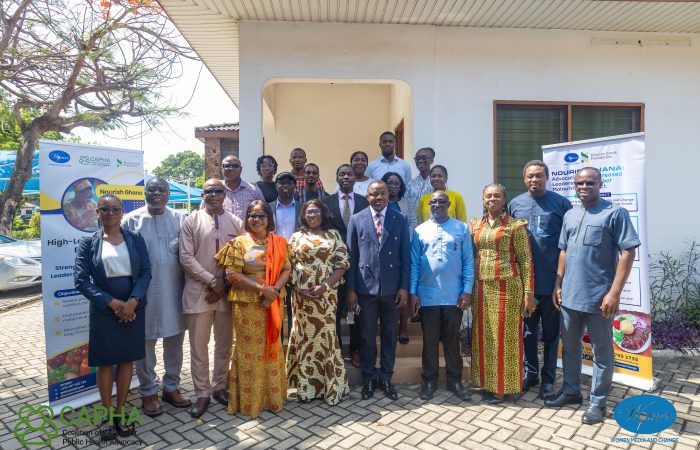
Women, Media and Change (WOMEC) in collaboration with the Department of Communication Studies at the University of Ghana, successfully conducted the national monitoring exercise for the 2025 Global Media Monitoring Project (GMMP) on May 6, 2025. A team of about 15 comprising lecturers, students, volunteers from the university of Ghana and WOMEC staff took part in the media monitoring.
This impactful partnership brought together the strengths of civil society and academia to contribute to the world’s largest and most enduring research initiative on gender representation in the news media.
The Global Media Monitoring Project (GMMP) is the world’s largest and longest-running international study focused on gender representation in news media. Initiated in 1995 by the World Association for Christian Communication (WACC), the GMMP conducts research every five years to assess gender disparities in news content across various platforms, including print, radio, television, and digital media. The idea for a one-day study of the representation and portrayal of women and men in the world’s news media was first conceived at the international conference on Women Empowering Communication in Bangkok in 1994.
The GMMP aims to; evaluate the presence and portrayal of women and men in news stories; Identify gender biases and stereotypes within media content and Advocate for gender equality in media representation. The Beijing Platform for Action’s Section J remains the touchstone for the GMMP.
WOMEC has been coordinating the GMMP in Ghana since 2005. WOMEC is a Ghanaian not-for- profit organization and seeks to use the media as an advocacy tool in advancing the cause of women. WOMEC works to amplify women’s voices and advance inclusive media practices.
WOMEC’s collaboration with the Department of Communication Studies at the University of Ghana in the 2025 Global Media Monitoring Project marks a strategic alliance that reinforces the credibility, academic rigor, and capacity-building aspects of the monitoring exercise. This partnership will not only strengthen the national monitoring process but also foster intergenerational knowledge exchange and critical reflection on gender dynamics in Ghanaian media. It also positions the University of Ghana as a key player in advancing gender-sensitive journalism research and advocacy at both national and global levels.
“Our collaboration with the Department of Communication Studies at the University of Ghana is a testament to the power of partnerships in driving impactful change. By bringing together civil society expertise and academic rigor, we are not only enriching the Global Media Monitoring Project process but also nurturing the next generation of media professionals to champion gender equality in and through the media,” said Dr. Charity Binka, Executive Director of WOMEC.

On her part, Prof. Abena Animwaa Yeboah-Banin, Head of the Department of Communications noted that “Partnering with WOMEC to monitor the media on the Global Media Monitoring Project is an important milestone for the Department because of the opportunity to contribute toward deepening our understanding of the gendered trends in the Ghanaian media.
Over the years, the GMMP has consistently highlighted the underrepresentation of women in news media. For instance, the 2015 report revealed that women comprised only 24% of the people heard, read about, or seen in newspaper, television, and radio news, a figure unchanged from 2010. Additionally, women were underrepresented as news subjects and sources, and their perspectives were often marginalized in coverage. In Ghana, the average was 15%, which is much lower than the global average, underscoring ongoing gender inequities in media representation and the need for change. The local coalition’s work aims to provide more current insights to guide interventions towards improving the situation.
The 2025 Global Media Monitoring Project comes at a critical moment as the world reflects on 30 years of commitments under the Beijing Platform for Action. The data and insights generated through this global exercise will serve as an essential benchmark for assessing progress and identifying persistent gaps in gender representation in the news media. The findings of the 2025 GMMP will not only evidence to inform advocacy and media reforms but also be a rallying call to accelerate actions toward building a media landscape that truly reflects the diversity, voices, and realities of all people, especially women and girls in Ghana.


